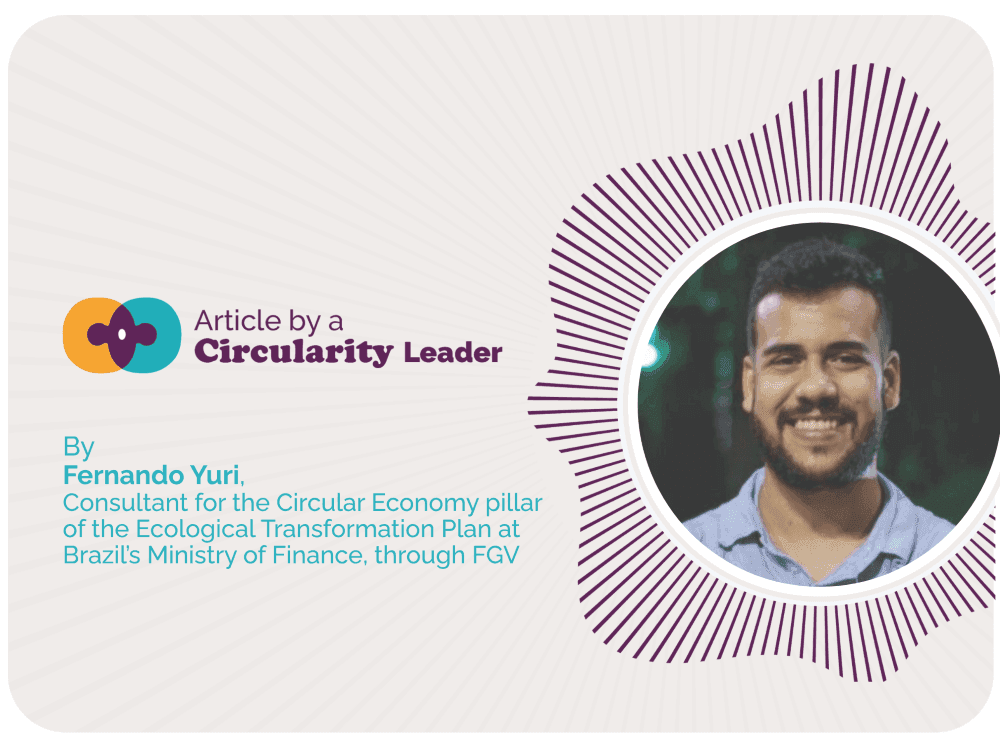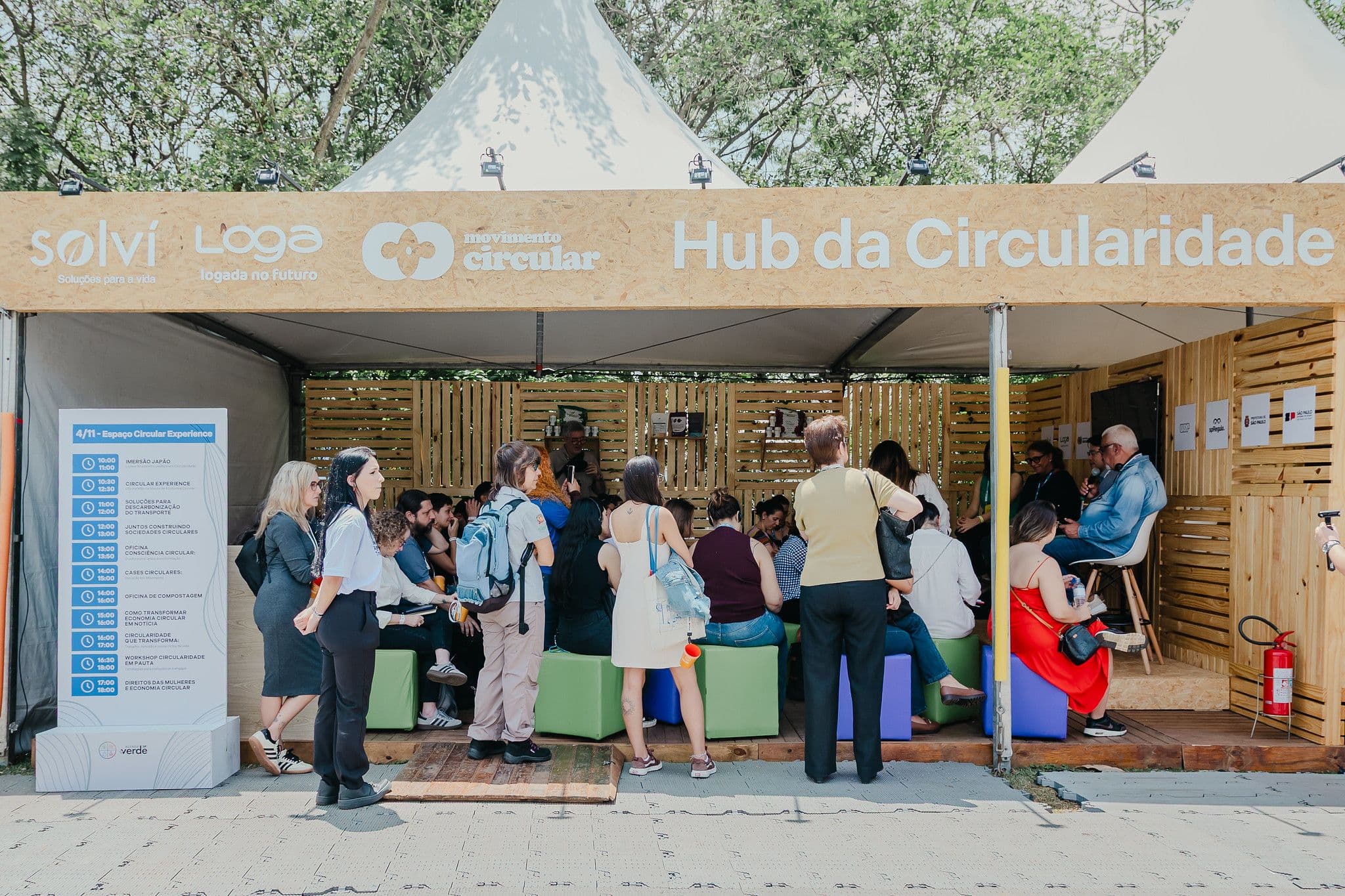
11/11/2025
Hub of Circularity promotes dialogues for the future at the Summit Agenda SP+Verde
By Gil Stefani, special for Circular Movement
On November 4 and 5, 2025, the city of São Paulo became the stage for the Summit Agenda SP+Verde, a major international pre-COP event. Promoted by the Government of São Paulo, the São Paulo City Hall and USP, the gathering brought together experts, leaders, and civil society representatives to discuss the pathways toward more sustainable development. At Parque Villa-Lobos, amidst debate stages and innovation initiatives, the Hub of Circularity – co-organized by Circular Movement in partnership with the State Secretariat for Environment, Infrastructure and Logistics (Semil), and sponsored by Solví and Loga – stood out as an epicenter of discussions and practical actions.
The Hub of Circularity hosted the discussion stage, a space of debate that explored the circular economy in its multiple dimensions, from public policies and innovative business models to social inclusion, as well as the presentation of circular case studies. With an intense program, the Hub provided a deep dive into solutions and challenges for a greener future. In parallel, Circular Movement coordinated several hands-on activities, offering experiences and workshops that turned theory into action.
Launch of Japan Immersion 2026: lessons from the Asian pioneer
The first day of the Hub of Circularity was marked by the presentation “Japan Immersion: Lessons from the Asian Pioneer in Circularity.” Moderated by Vinícius Saraceni, Executive Director of Circular Movement, the panel featured experts such as Ana Bertelli, Jenny Sayaka Komatsu (Brechó do Carbono), Ugo Ibusuki (AOTS), and Telines Basilio, “Carioca” (Coopercaps). The speakers discussed how Japanese culture, rooted in concepts such as mottainai (not wasting) and omoiyari (caring for others and for things), is fundamental to circularity, highlighting valuable lessons for Brazil in environmental education and inclusion of waste pickers.
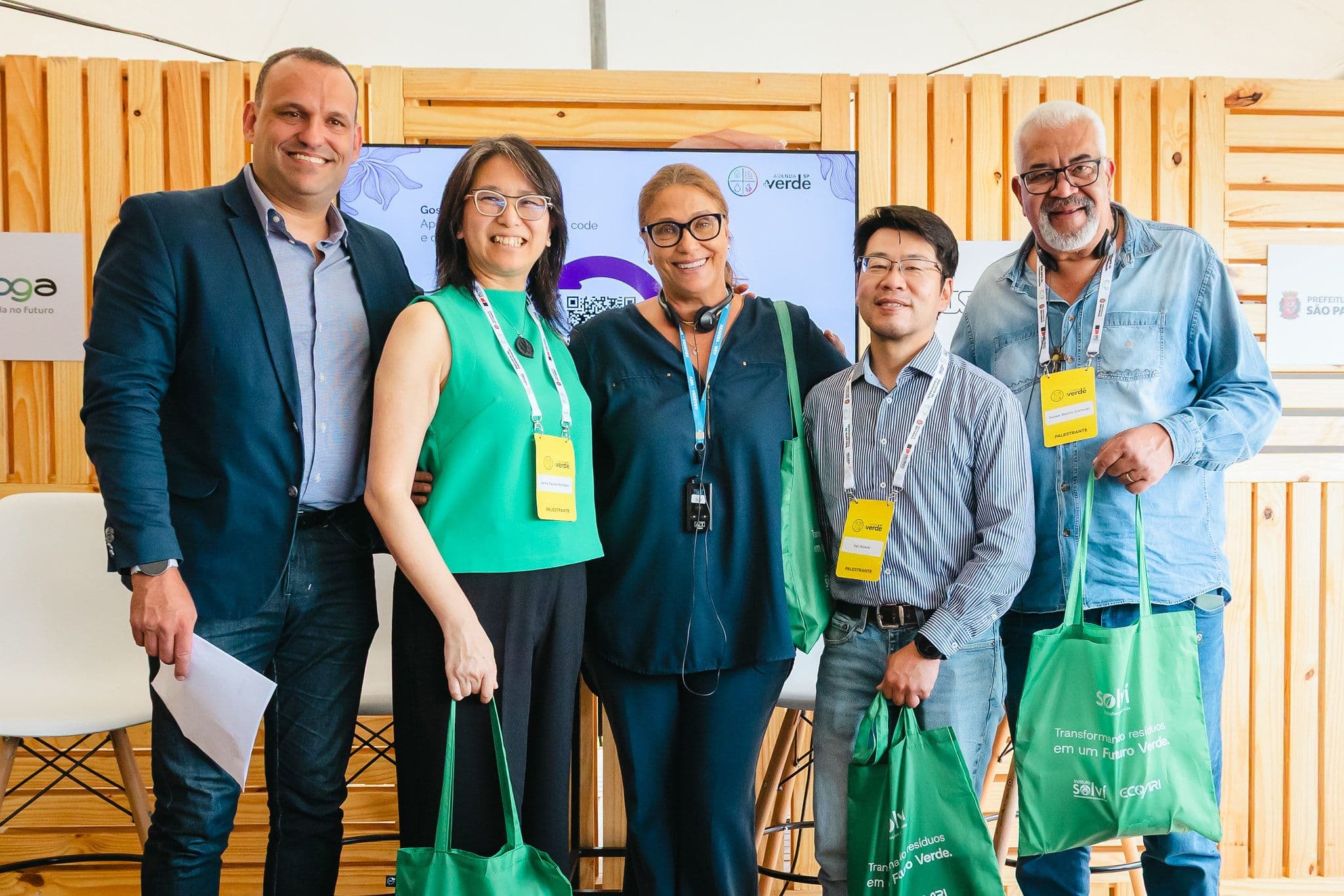
The panel marked the launch of “Japan Immersion 2026", an exclusive seven-day program in Japan, scheduled for May next year. With only 25 places available for professionals, the experience will include visits to major manufacturers, interaction with academics, and exploration of bioeconomy and zero-waste city initiatives. The Japan Circular Experience 2026 is organized by Circular Movement in partnership with AOTS, and pre-registrations are already open.
During the Hub’s opening, Vinícius Saraceni emphasized Circular Movement’s strategic vision.
“Circular Economy is an agenda of opportunities for new businesses, employment, and income.” He highlighted multi-sector collaboration as a pillar, stating that “no one builds it alone – it requires the union of different actors.”
Examples such as Solví’s production of organic fertilizer, Loga’s biomethane fleet, and Semil’s “Circular Week” program illustrated this synergy. CETESB president Tomás Isaque Pistolezi reinforced the institution’s role in structuring the sustainability agenda, with a focus on data transparency and investment support. Saraceni also stressed the importance of continuous learning, citing the Japanese experience of children visiting sorting centers, and concluded that Circular Movement fulfills its role as a “platform for literacy and continuous education for the circular economy.”
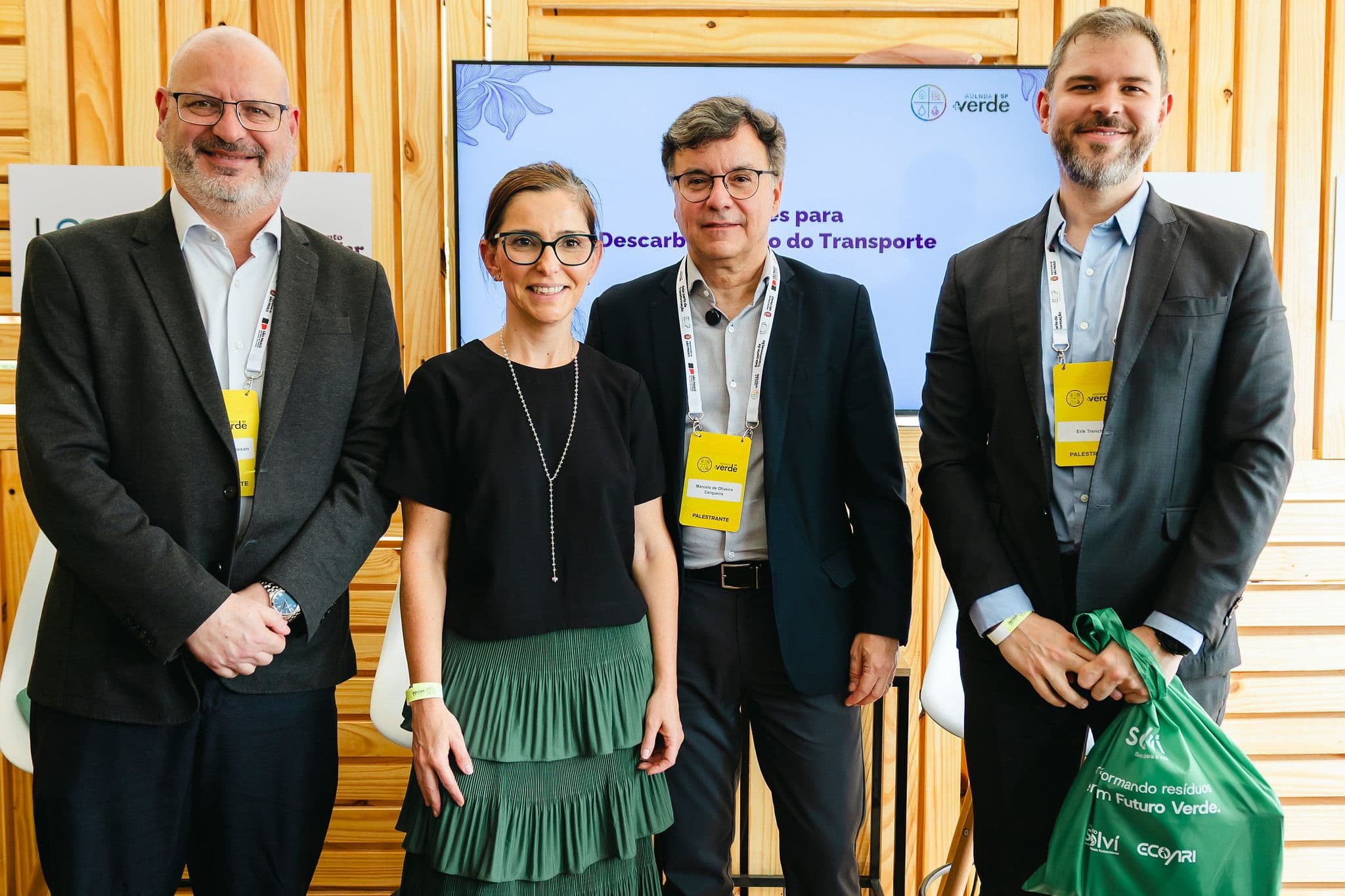
Biomethane, plastic and social inclusion: deepening circularity
Other panels discussed solutions for transport decarbonization, highlighting biomethane as a circular energy source generated from organic waste, and the need for a collaborative ecosystem among the private sector, government, and civil society.
Impact-driven initiatives and businesses in São Paulo also had their space, with presentations of cases such as “Ecowork – fabric made from reused uniforms” (Grupo Ideal Work); “Shrink PCR Film Lord with post-consumer recycled resin Dow REVOLOOP” (Lord); and “Ecoari – Transforming Caieiras/SP into a national reference in circular economy” (Ecoari).
The social impact of circularity was the central theme of the panel “Circularity that Transforms: Work, Inclusion and New Life Cycles,” emphasizing waste valorization, the creation of green jobs for women in vulnerable situations, and the formalization of waste pickers’ work, 70% of whom are women.
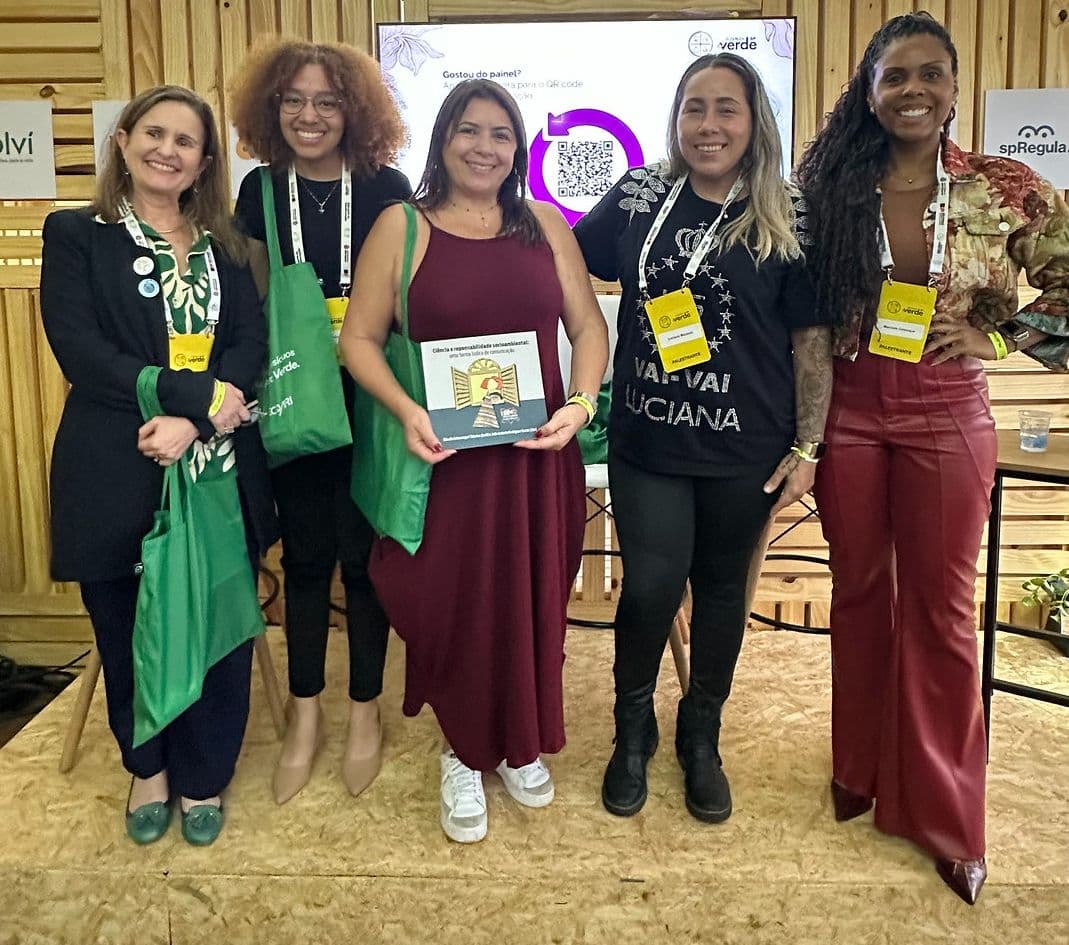
The panel “Women’s Rights and Circular Economy” also reinforced female leadership as an agent of transformation. The panel “Education and Circularity” presented the successful case “Mutirão do Eletrônico” (Electronics Drive) by Magazine Luiza, in partnership with Circular Movement, Centro Paula Souza, and ABREE – Brazilian Association for the Recycling of Electronics and Appliances. The initiative engaged 100 schools in waste collection, strengthening shared responsibility and educating children and adolescents as agents of transformation.
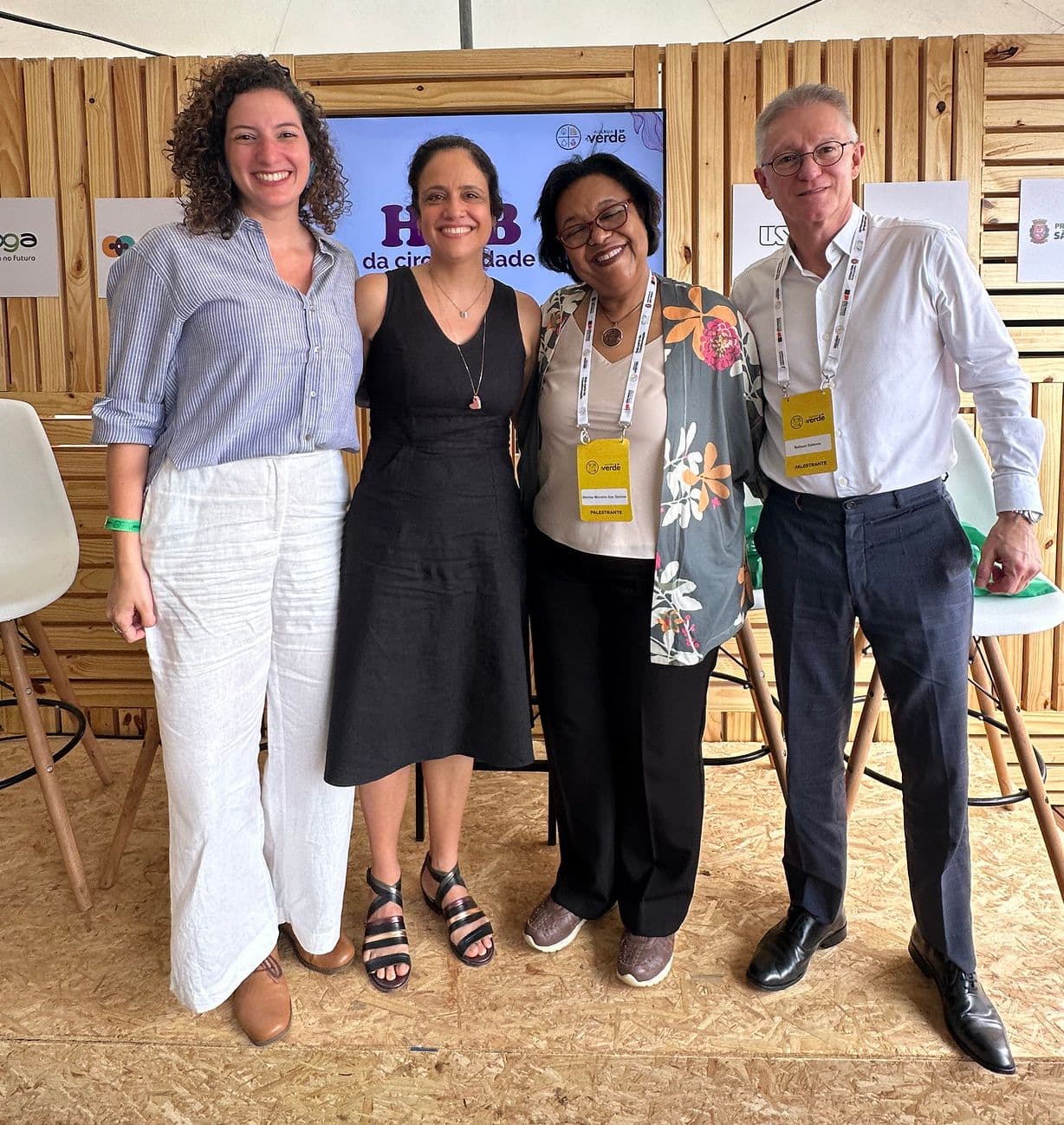
The challenges and solutions for “Plastic Circularity” were debated, focusing on the recent Plastic Decree, which requires 32% of disposable packaging to be collected and recycled by 2026. The importance of professionalized waste pickers and the Recircula Brasil Program – the first national platform to track plastic waste – was emphasized. Innovative projects such as the chemical recycling of polyurethane (Purcom and Electrolux) and the transformation of PET bottles into fabric for sneakers (Southern Minas Gerais Network) demonstrated the strength of Brazilian innovation.
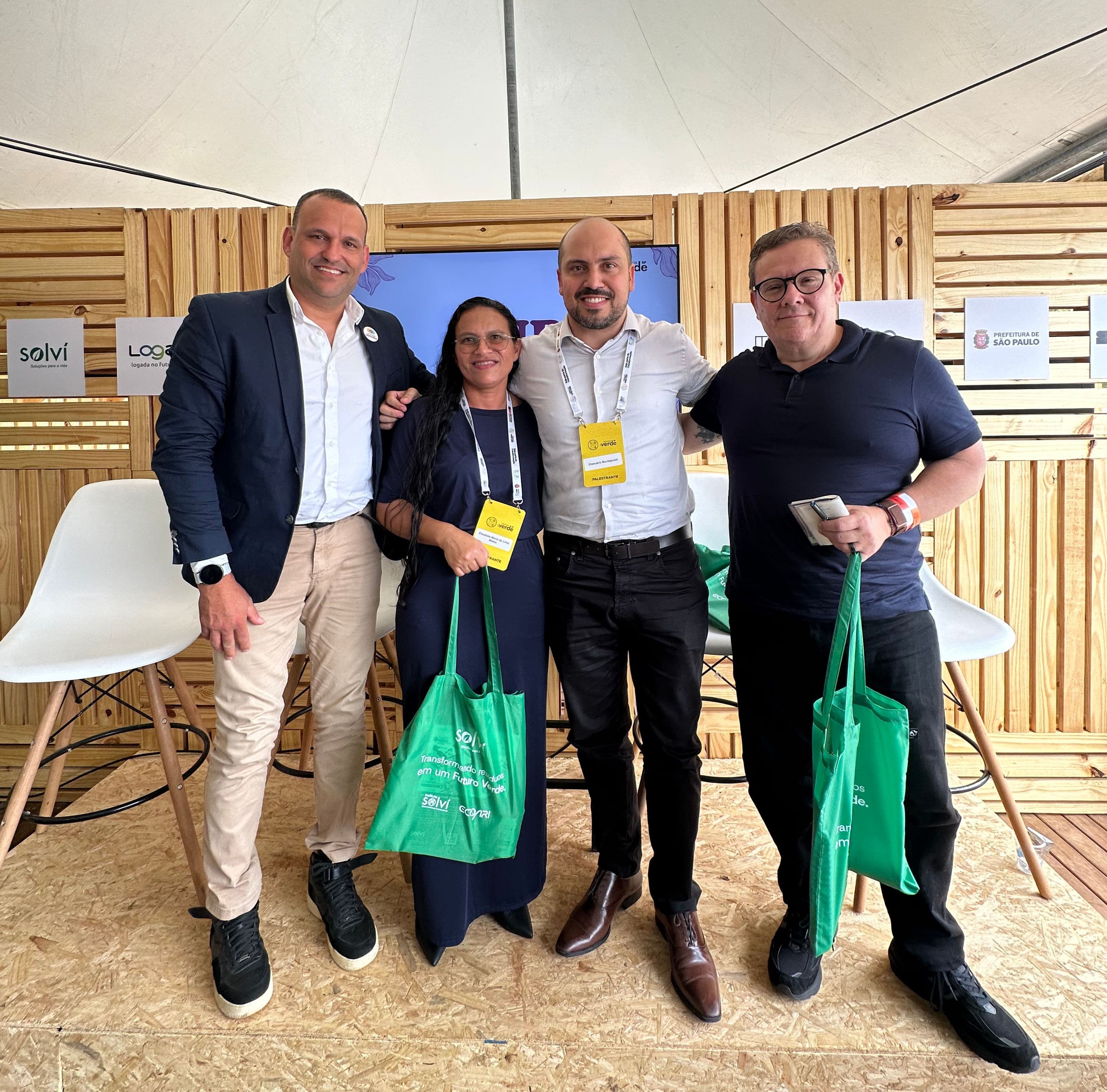
Launch of the first International Circular Certification
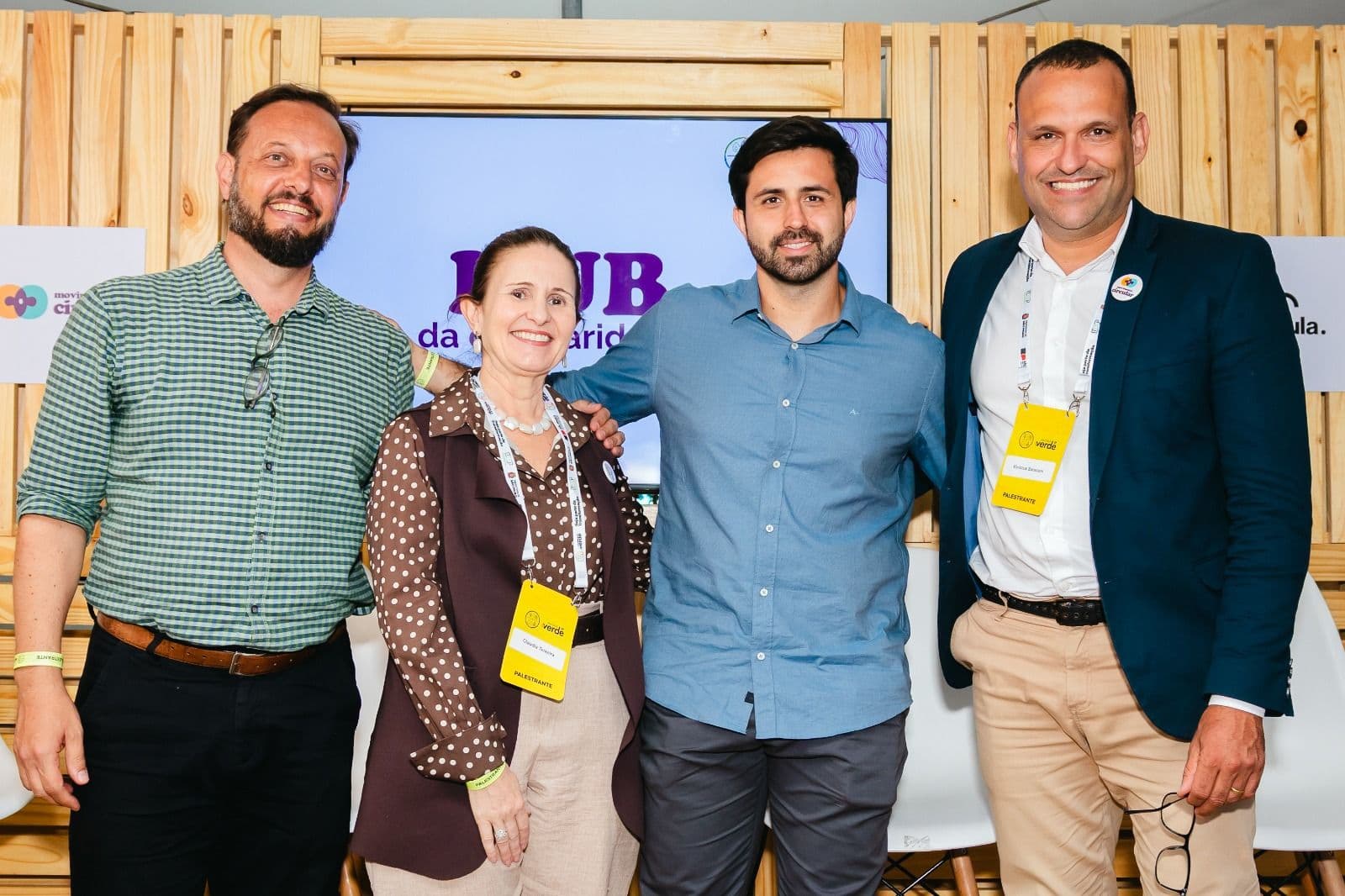
The Hub of Circularity culminated with a major announcement: Circular Movement hosted the debate “The Future is Circular: New Perspectives and International Certification,” officially launching the first International Circular Certification. Moderated by Vinícius Saraceni, the panel included Cláudia Teixeira (IPT), Prof. Dr. Flávio de Miranda Ribeiro (technical coordinator of the project), and Mateus Peçanha (Zeros).
The International Circular Certification, currently in its pilot phase, is expected to become fully operational in the first half of 2026. This joint effort aims not only to foster more sustainable practices but also to become a tool to guide and validate circular economy strategies across organizations of different sizes, setting a new global standard for corporate sustainability.
Hands-on learning experiences
The space dedicated to practical activities complemented the debates with workshops and circularity experiences. Participants were able to rethink products and processes (Hands-on Circular Economy), turn glass into art (Circular Awareness), learn composting (Composting Workshop with Loga), and improve communication on circular topics (Sherlock Communications).
The second day offered experiences in science, technology, and sustainability (“Tec@ Weaving with Science”), a collaborative climate game (Climate Mural Workshop), playful sustainability activities for children (“Manu and the Circle of Everything”), and urban gardening classes (“Hands in the Soil”).
The Summit Agenda SP+Verde, with the dynamism of its Hub of Circularity, acted as a catalyst for change. The diversity of topics, the depth of debates, and the interactivity of the workshops reflected São Paulo’s commitment to becoming a global reference in the transition toward a circular economy.
*This text was automatically translated with the help of artificial intelligence and reviewed. Still, there may be slight differences compared to the original version in Portuguese.
